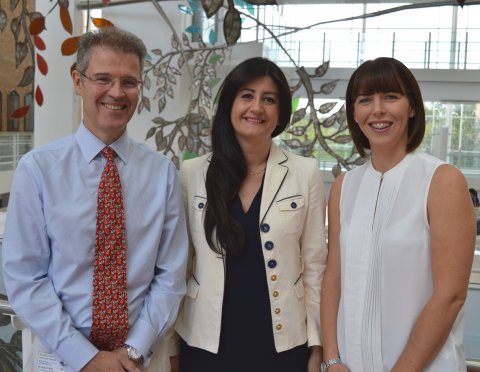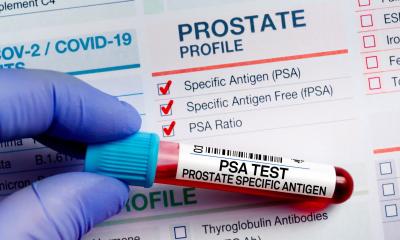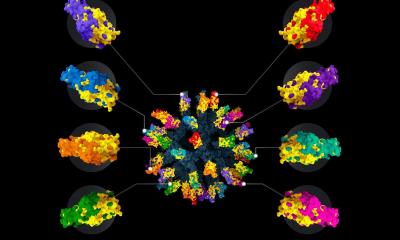Image source: Unsplash/FOODISM360
News • Delicious life-savers?
The benefits of broccoli and garlic for prostate health
A new study has begun to test whether broccoli and garlic can help improve prostate health.
The Norfolk Accumulation of Dietary Bioactives and Prostate Cancer (ADaPt) study has been launched by researchers at Quadram Institute Bioscience (QIB) and the Norfolk and Norwich University Hospital (NNUH). The study, which will take place at the NNUH-run Clinical Research Facility at the Quadram Institute, will involve 40 patients who are due to receive a biopsy for suspected or previously diagnosed prostate cancer.

The new trial is investigating the relationship between ingestion of the bioactive compounds from broccoli and garlic and prostate cancer. Researchers at QIB and NNUH aim to expand our understanding of how consuming two different commercially available food supplements can improve prostate health.
Prostate cancer is the most common cancer in men in the UK. The NNUH receives more than 800 referrals a year to investigate and treat potential prostate cancers. However, it usually develops slowly and the majority of cancers will not require treatment in a man’s lifetime.
Tracey Livingstone, Urology Fellow at the NNUH and Principal Investigator of the Norfolk ADaPt trial, said: “Diet appears to have an important role in prostate cancer’s development and progression. The dietary bioactive components from foods such as broccoli and garlic have long been associated with a reduction in the risk, or progression, of prostate cancer. However, there have been few trials which shed light on the potential mechanisms in which the prostate gland becomes exposed to these compounds.”

“The ‘Norfolk ADaPt’ trial aims to assess whether the consumption of dietary supplements containing the active compounds from broccoli and garlic results in an accumulation within the prostate gland and urine in comparison to a normal diet. We also aim to assess whether these compounds alter the prostatic microbiome, and the expression of the genes associated with prostate cancer development and progression.”
The majority of patients with prostate cancer that do not require radical treatment are closely monitored on a programme of ‘active surveillance’ with regular blood tests and biopsies to assess whether there is tumour progression. However, there are currently no approved therapeutic interventions for men who have chosen a programme of ‘active surveillance’ that may reduce the risk of cancer progression
Patients who volunteer to take part in the trial will be asked to consume four capsules a day for at least four weeks prior to their biopsy procedure and will be asked to provide urine and blood samples for testing, as well as additional prostate biopsy cores taken at the time of their routine procedure.
This study will provide further insight into the potential mechanisms by which dietary constituents may prevent or slow the progression of prostate cancer
Robert Mills
Melanie Pascale, Manager of the Clinical Research Facility at the Quadram Institute, said: “We are delighted to be hosting the first broccoli and garlic trial at the CRF. The facility is perfectly located for research into nutrition and human health because of its close links to the scientists and clinicians working in the Quadram Institute and Norwich Research Park.”
Robert Mills, Consultant Surgeon in Urology at NNUH, added: “This study will provide further insight into the potential mechanisms by which dietary constituents may prevent or slow the progression of prostate cancer.”
Source: Norfolk and Norwich University Hospitals NHS Foundation Trust
16.08.2019











